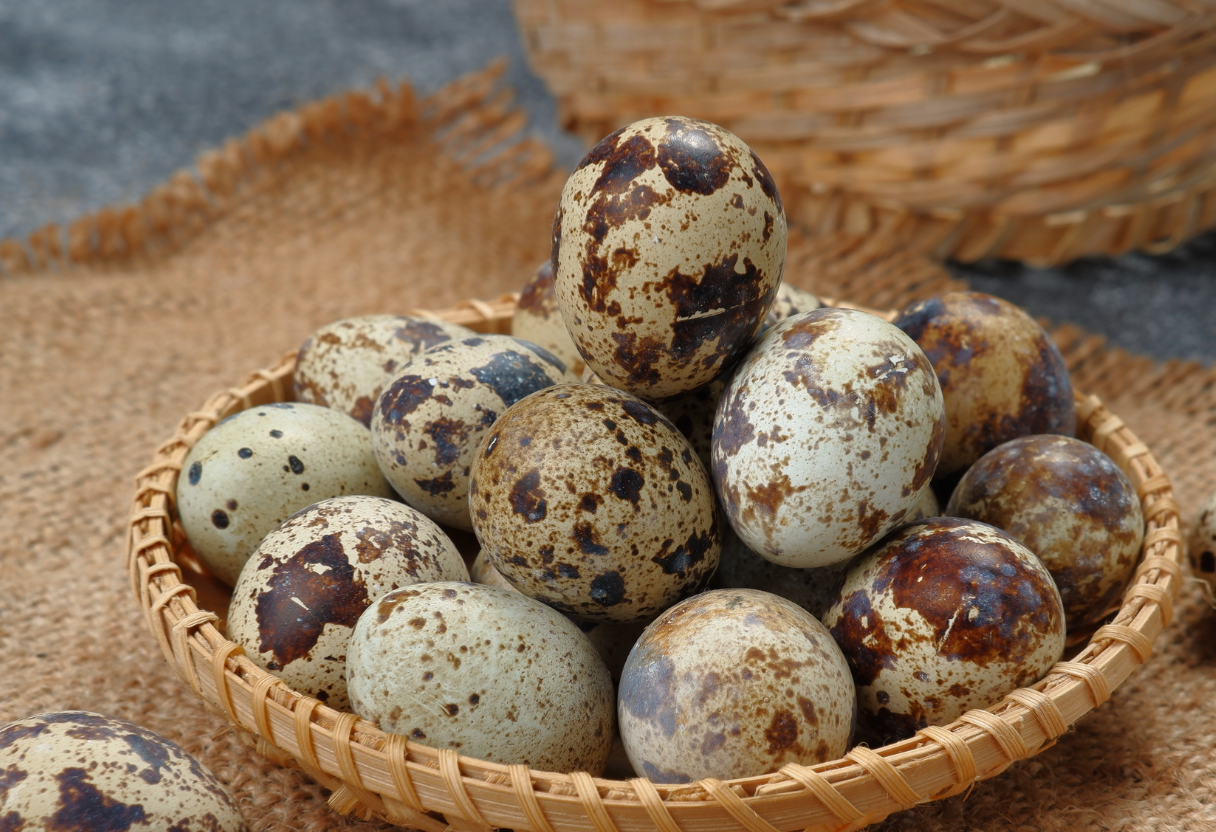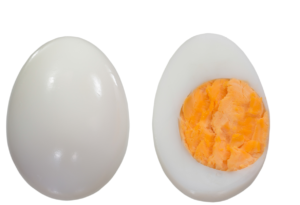When it comes to superfoods, quail eggs may not be the first thing that comes to mind, but these tiny eggs are packed with a wide range of nutrients that can offer significant health benefits. Although small in size, quail eggs are filled with vitamins, minerals, and essential nutrients that make them a powerful addition to a healthy diet. In this blog, we’ll explore the health benefits of eating quail eggs, the nutrients they provide, and how incorporating them into your meals can contribute to better overall health.
What Are Quail Eggs?
Quail eggs are the eggs of quails, small birds commonly found in various regions across the world. These eggs are notably smaller than chicken eggs—typically one-third the size—but they have a richer flavour and contain more nutrients in comparison to the average chicken egg. Their speckled appearance and delicate shell make them unique, and while they may be small, they pack a nutritional punch.
Whether you are familiar with quail eggs or considering adding them to your diet for the first time, it’s important to understand the range of health benefits of eating quail eggs and why they might be worth including in your regular meal plans.

Nutritional Breakdown of Quail Eggs
Before diving into the health benefits, let’s take a look at what makes quail eggs so nutritious. Per 100 grams, quail eggs contain the following nutrients:
- Protein: 13 grams
- Fat: 11 grams
- Calories: 158 kcal
- Vitamin A: 140% of the daily recommended intake
- Vitamin B12: 26% of the daily recommended intake
- Iron: 20% of the daily recommended intake
- Selenium: 26% of the daily recommended intake
- Riboflavin: 30% of the daily recommended intake
Quail eggs are also an excellent source of phosphorus, zinc, potassium, and folate. Now that we know the nutrient profile of quail eggs let’s explore how these nutrients contribute to overall health and well-being.
Boosts Immunity
One of the most notable health benefits of eating quail eggs is their ability to boost the immune system. Quail eggs are rich in antioxidants, particularly vitamins A and C, which play a critical role in fighting off free radicals in the body. Free radicals are unstable molecules that can cause oxidative stress, leading to cell damage and contributing to chronic diseases like cancer and heart disease.
In addition to antioxidants, quail eggs contain essential minerals like selenium and zinc, both of which help support the immune response. Regular consumption of quail eggs hel,ps fortify, your immune system, making it easier for your body to fight infections and maintain overall health.
Supports Brain Health and Cognitive Function
Quail eggs are a great source of choline, a nutrient that plays a vital role in maintaining brain health and cognitive function. Choline is involved in the production of acetylcholine, a neurotransmitter responsible for regulating memory, mood, and muscle control.
Furthermore, quail eggs are rich in vitamin B12, which is crucial for the proper functioning of the brain and nervous system. Deficiencies in B12 can lead to memory problems, mood disturbances, and cognitive decline, so incorporating quail eggs into your diet can help support long-term brain health.
Improves Skin Health
If you’re looking for a natural way to enhance your skin’s appearance, the health benefits of eating quail eggs might surprise you. The high vitamin A content in quail eggs helps promote skin repair and cell regeneration, leading to a more youthful and glowing complexion. Vitamin A also has anti-inflammatory properties, which can help reduce acne and other skin conditions.
Additionally, the protein and fat found in quail eggs help maintain the skin’s elasticity and hydration, reducing the appearance of fine lines and wrinkles over time. By incorporating quail eggs into your diet, you can support healthy, radiant skin from within.
Promotes Heart Health
Heart health is one of the most important aspects of overall well-being, and quail eggs offer several benefits in this area. They contain essential fatty acids, including omega-3s, which are known to lower bad cholesterol levels (LDL) while increasing good cholesterol levels (HDL). This balance of cholesterol can help reduce the risk of atherosclerosis, a condition where plaque builds up in the arteries, leading to heart disease.
Moreover, the presence of potassium in quail eggs supports heart health by helping to regulate blood pressure. Potassium works to relax blood vessel walls, which can lower blood pressure and reduce the risk of heart attacks and strokes.
Enhances Energy Levels and Fights Fatigue
Another important health benefit of eating quail eggs is their ability to increase energy levels. Quail eggs are a good source of high-quality protein, which is essential for muscle repair, tissue growth, and maintaining overall energy. The iron content in quail eggs also supports healthy blood circulation, ensuring that your cells get enough oxygen to keep you energized throughout the day.
Since quail eggs contain vitamin B12, they also help in combating fatigue. Vitamin B12 is involved in the production of red blood cells and plays a key role in energy metabolism. By including quail eggs in your diet, you can prevent B12 deficiency and maintain high energy levels throughout the day.
Aids in Digestion and Promotes Gut Health
Quail eggs are easily digestible and are a good option for individuals who may have sensitivities or allergies to chicken eggs. The nutrient-rich composition of quail eggs, particularly their high content of vitamin B12 and selenium, helps support digestive health.
Additionally, quail eggs contain compounds that can soothe inflammation in the digestive tract, which can be beneficial for people suffering from conditions like gastritis or irritable bowel syndrome (IBS). This makes quail eggs an excellent food choice for promoting overall gut health and maintaining a balanced digestive system.
Helps with Weight Management
Despite their small size, quail eggs are nutrient-dense and can be a great addition to a weight management plan. The combination of protein, healthy fats, and low carbohydrate content makes quail eggs an excellent food for controlling hunger and boosting metabolism.
Protein is known to increase feelings of fullness, helping you manage portion sizes and reduce overall calorie intake. Additionally, the fats in quail eggs provide sustained energy, making it easier to resist unhealthy snacks and maintain a balanced diet.
Also Read: amazing benefits of Chia seeds
Conclusion
Incorporating quail eggs into your diet can offer a wide range of benefits, from boosting your immune system to supporting heart and brain health. Despite their small size, these eggs are packed with essential vitamins, minerals, and antioxidants that contribute to overall well-being. Whether you are looking to improve skin health, increase energy levels, or support digestion, the health benefits of eating quail eggs make them a worthy addition to your meals.
As you explore more ways to incorporate quail eggs into your diet, keep in mind their versatility. They can be boiled, fried, scrambled, or even used in salads and soups, making them an easy and delicious way to boost your nutrition. So, next time you’re at the grocery store, consider picking up some quail eggs and enjoy the myriad benefits they offer!













